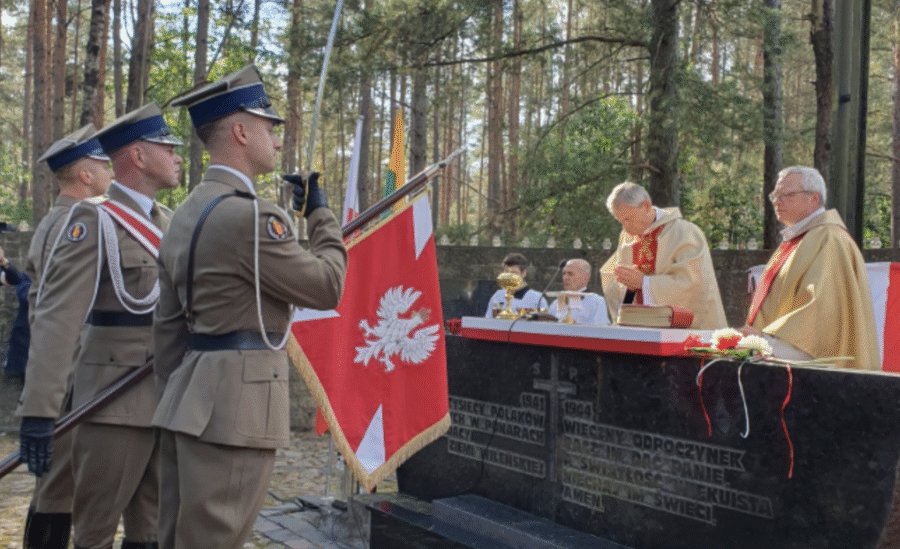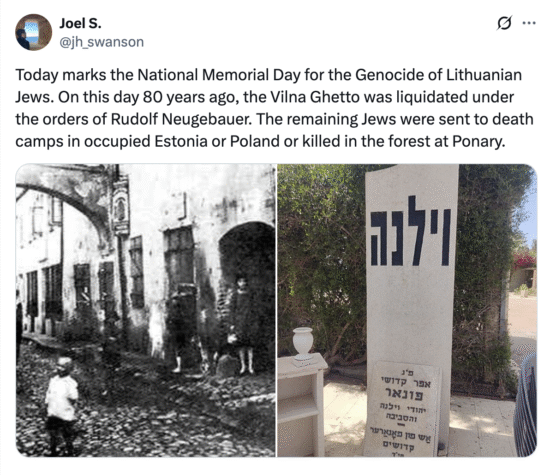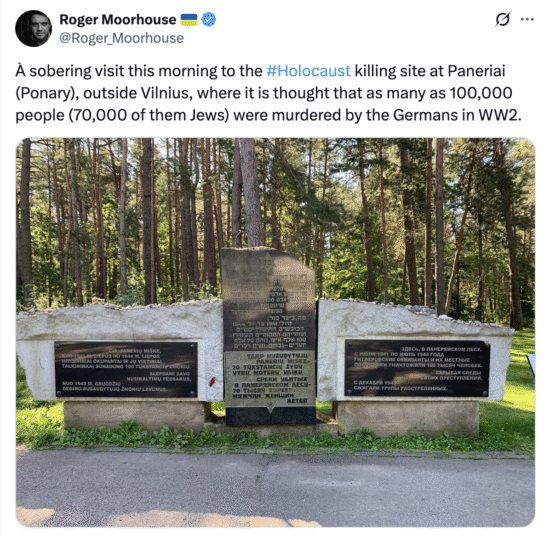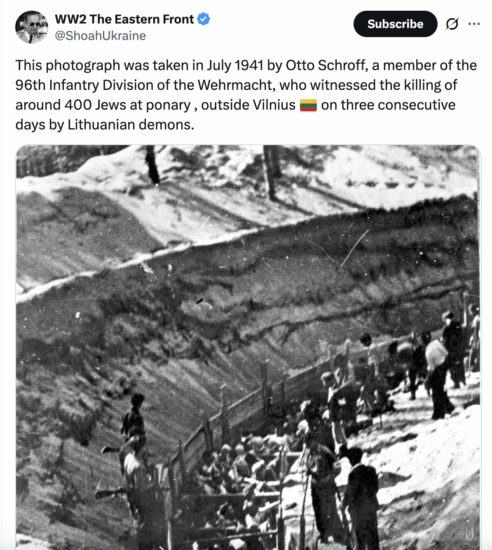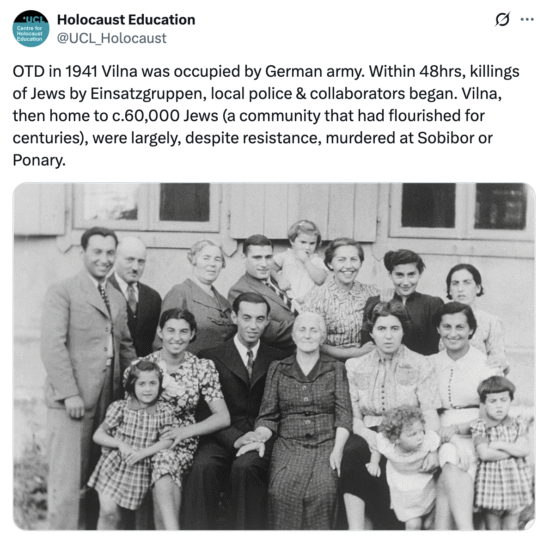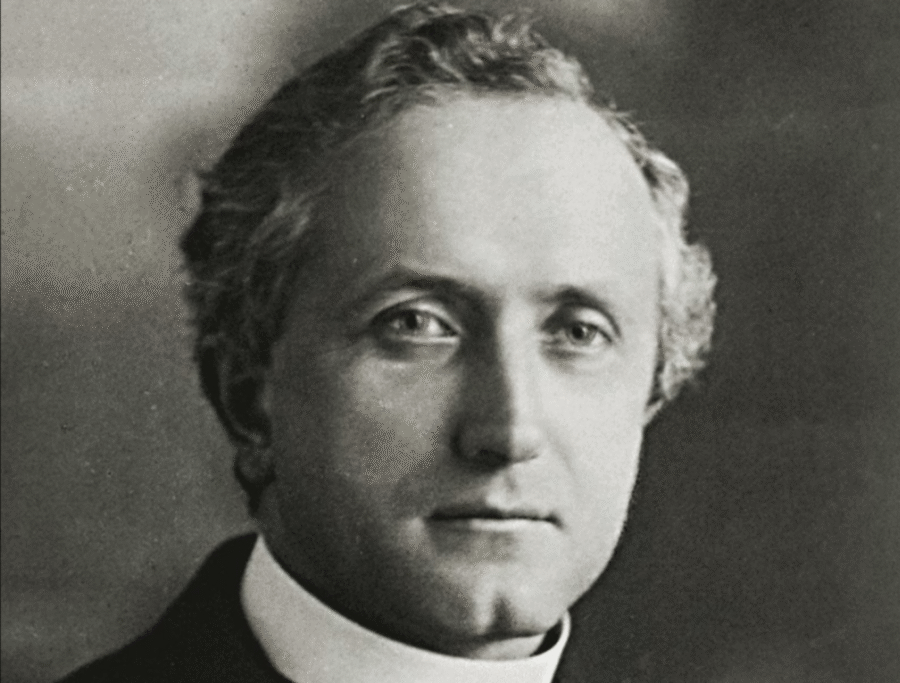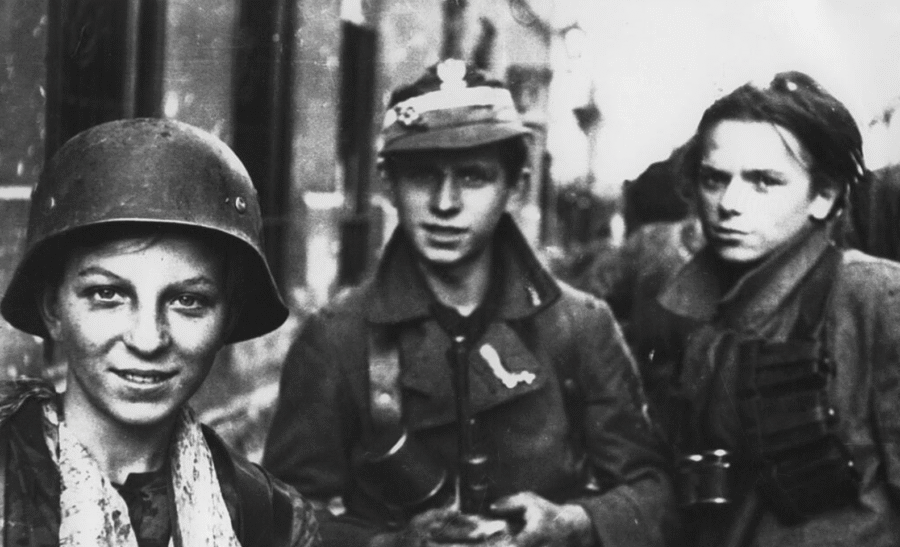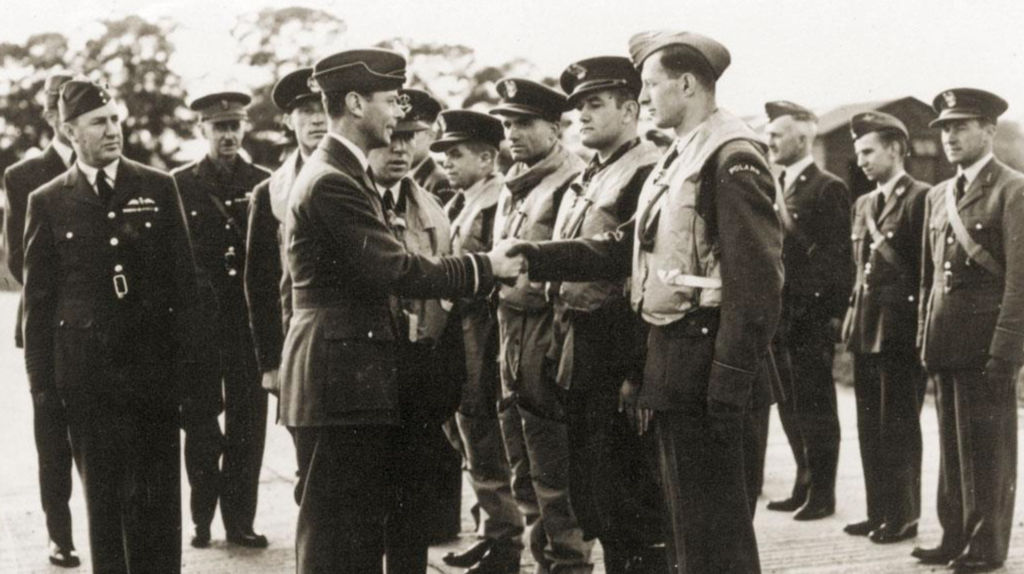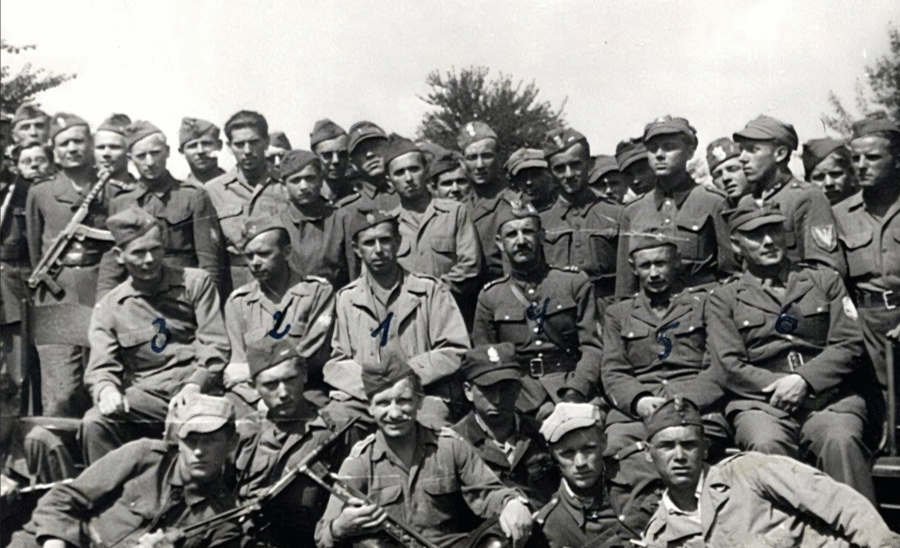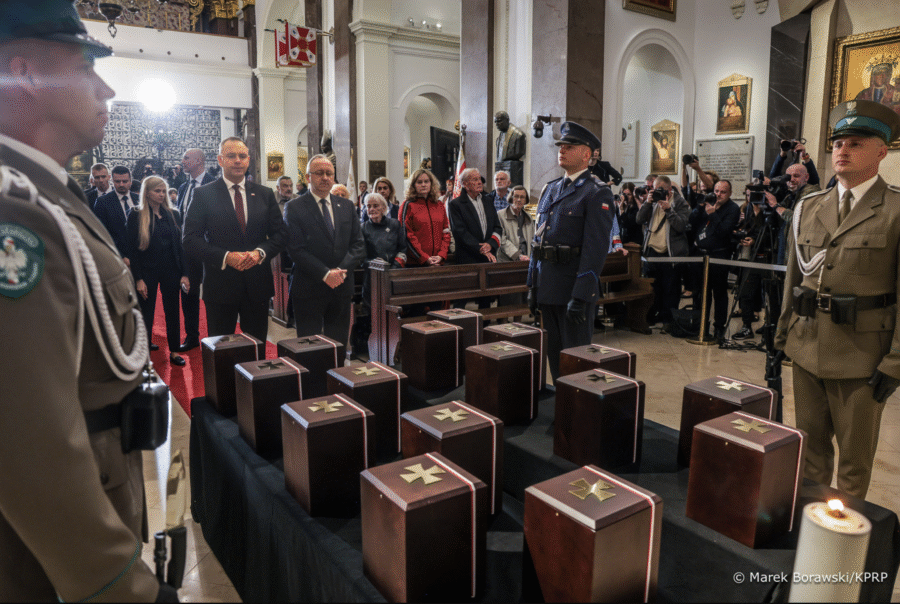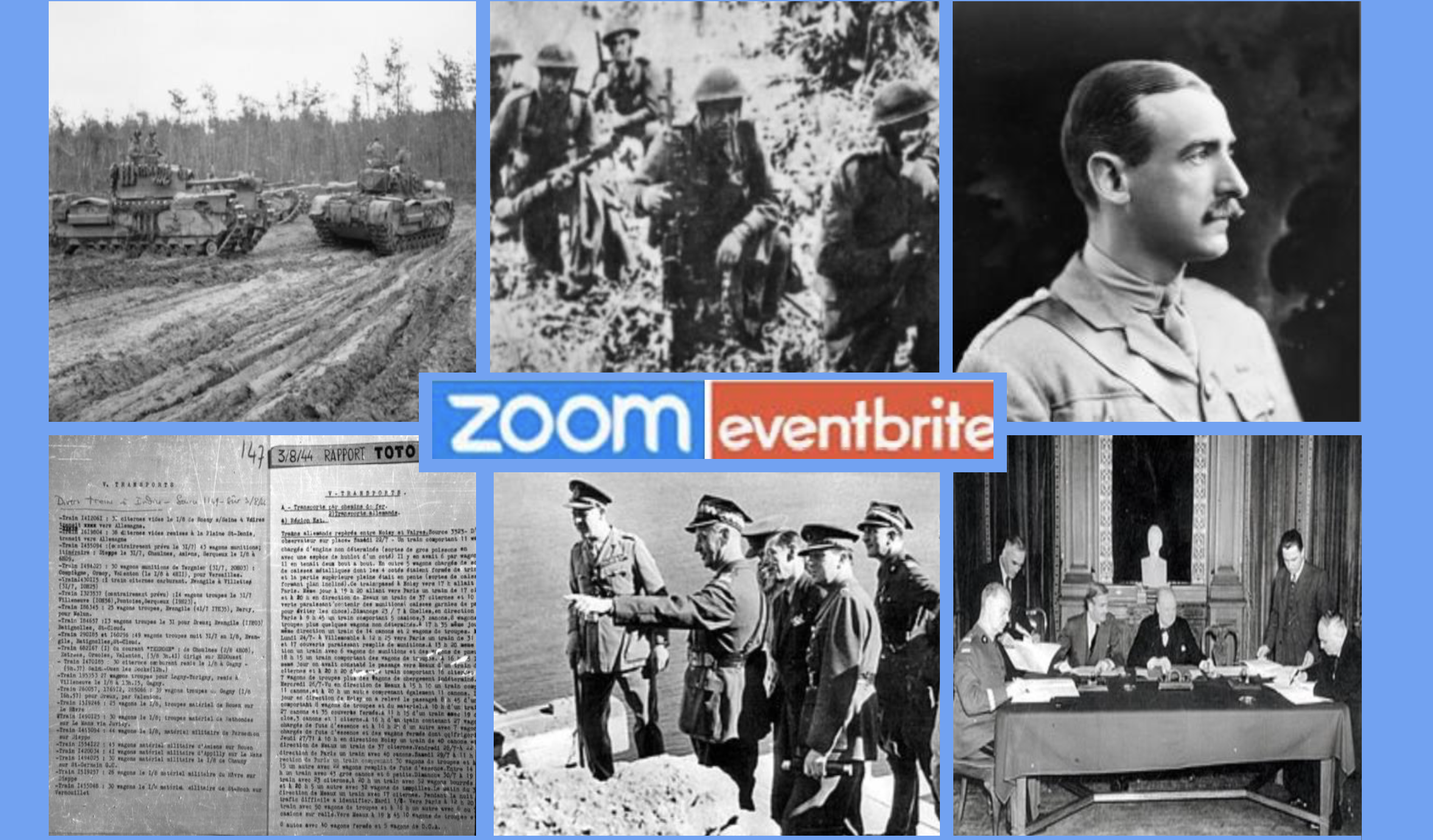The forest of Ponary, once a popular leisure spot on the outskirts of Vilnius, became on Wednesday the scene of sombre remembrance as officials, survivors’ families and members of the Polish community gathered to honour the victims of one of the Second World War’s most brutal crimes. Between 1941 and 1944, an estimated 80,000 citizens of the Second Polish Republic, among them Jews, Poles, Belarusians, Romani people, Tatars, Lithuanians and Soviet POWs, were murdered there by German occupiers aided by Lithuanian collaborators. The site, often described as a “human slaughterhouse” by eyewitnesses, remains one of the most powerful symbols of wartime atrocity in Eastern Europe.
The commemoration, co-organised by Poland’s Office for War Veterans and Victims of Oppression, the Polish Embassy in Vilnius, the Union of Poles in Lithuania and remembrance associations, drew a wide audience: descendants of victims, veterans, opposition activists from the communist era, schoolchildren from the Vilnius region and representatives of both Polish and Lithuanian authorities.
The ceremony began with a mass led by Father Cyryl Zieliński, followed by an ecumenical prayer offered by clergy of other faiths, a roll call of remembrance and the laying of wreaths at the Polish cemetery. An honour guard and the Representative Orchestra of the Polish Army underlined the state importance of the occasion.
Lech Parell, head of the Polish veterans’ office, reminded participants that Ponary was once a place of family outings, pine forests and ski slopes before it was transformed into a killing ground. He cited both the harrowing accounts of journalist Józef Mackiewicz, who described the forest as a “slaughterhouse”, and the buried testimony of Kazimierz Sakowicz, who chronicled executions from the attic of his nearby home before being killed himself.
“The Ponary massacre was one of the most horrifying acts of genocide of the Second World War,” Parell said, stressing that remembrance must not be limited to flowers and ceremonies but expressed through the building of a united, resilient Poland.
Messages from Polish leaders reinforced this theme. President Karol Nawrocki, in a letter read by presidential adviser Jan Józef Kasprzyk, described the victims as “ordinary citizens and prominent figures alike, professors, priests, officers and community leaders whose murder was part of the joint Nazi-Soviet plan to eliminate Poland’s leadership class.”
He emphasised that ensuring dignified memorials at Ponary and beyond was a matter of national interest. Speaker of the Polish parliament Szymon Hołownia also addressed the gathering in a letter, linking the memory of Ponary to present-day challenges, including Russia’s ongoing aggression in Ukraine, and stressing the need for solidarity against imperialist policies.
The ceremony carried a deeply personal dimension. Maria Wieloch, president of the Ponary Family Association, whose father, an officer of the Home Army, was murdered in the forest, reminded the audience that seven people present had lost close relatives in Ponary.
“We appeal to everyone for peace in the world, in our hearts and in our souls so that the tragic history of Ponary is never repeated,” she said. The association received recognition from Polish and diaspora organisations for its decades of work in preserving memory.
Polish Ambassador Grzegorz Marek Poznański emphasised that remembrance should inspire unity. “The sacrifice of those murdered is a call to memory, but also a call to constant care for our homeland. Only united will we be strong enough to ensure that what happened here will never happen again,” he said.
The day’s events included the awarding of state and veterans’ medals to individuals and groups who have contributed to preserving historical truth, as well as the presentation of honorary distinctions marking the 30th anniversary of the Ponary Family Association. Later in the afternoon, a Ponary Conference was scheduled at the Polish Cultural Centre in Vilnius to explore further historical, educational and commemorative dimensions of the massacre.
The Ponary killings remain the largest massacre committed in the north-eastern borderlands of the pre-war Polish state. While precise figures are difficult to establish owing to the Germans’ destruction of mass graves in 1943–44, historians estimate that around 100,000 people were killed.
Of these, some 60,000 to 70,000 were Jews from Vilnius and surrounding areas, but the dead also included thousands of Poles: students, scouts, priests, academics of Stefan Batory University, members of the intelligentsia and resistance fighters, as well as ordinary civilians seized in round-ups.
As wreaths were laid and prayers recited, one theme resonated above all: the responsibility to remember. “Like Katyn, Palmiry and Piaśnica, Ponary stand as a warning,” Parell said.
“Our anger must not be powerless. We must transform it into the strength of our homeland, so that Poland is never again at the mercy of aggressors.”
Source: PAP
Photo: X/@JanKasprzyk
Tomasz Modrzejewski


